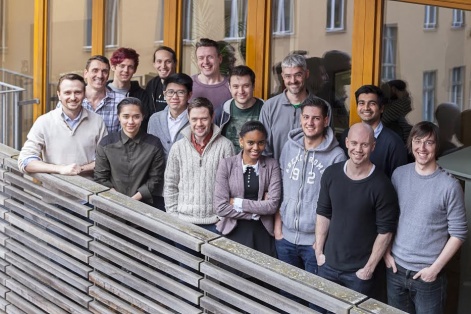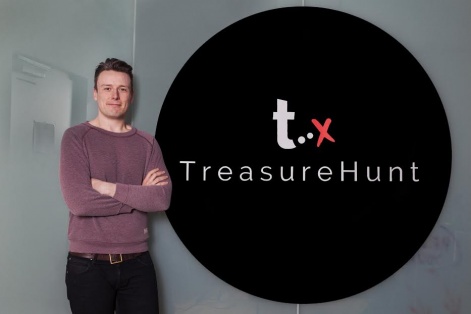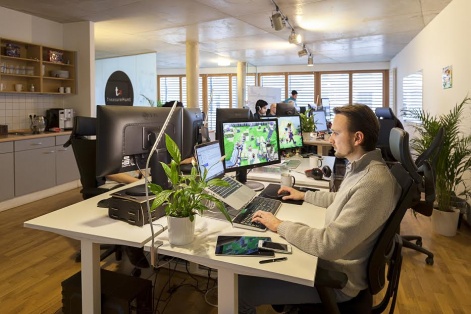Kyle Smith is co-founder and CEO of Berlin mobile games studio TreasureHunt.
An EA alumnus, Smith set up TreasureHunt in 2014. Here, he shares with PocketGamer.biz his insights and top tips on establishing a games studio.
TreasureHunt is currently hiring.
Starting a games studio is idiotic, brutal, stressful and you should totally do it.
TreasureHunt’s first year plus was not one of those darling, rocketing-to-success-on-the-back-of-a-unicorn stories. It was a really tough first year for us.
We‘re a mobile games studio based in Berlin and I have difficulty grasping where we’re at today compared to where we were two years ago. We have a world-class team and a game that I’m really proud of in soft launch called Pet Paradise.
Below is a collection of personal experiences from the perspective of the CEO and first co-founder of the studio on things I think I got right, did wrong - which we fixed later - and some things I’m working on now.
Why do you want to start a studio?
I don’t think “to make games” is a good answer. I think it’s a pretty bad one, actually. I think you’ll get bored.
It’s more motivating to try and fix something or do something that isn’t being done well, or at all.
It’s nice to think you’re making something that people have told you they want, but that they’re not getting right now.Kyle Smith
Our mission has shifted a bit (and continues to) from when we started but we’ve always had one, and it's focused on “fixing something". You don’t have to take that approach, but that’s what we’re doing.
It’s nice to think that you’re making something that people have told you they want, but that they’re not getting right now.
You’re not saving the world but it’s a cool feeling. There’s some purpose there.
You're going to have days that punch you square in the face and honestly, I don’t think “making games” would have been enough for me to keep going.
Get ready to throw out a lot
I had been in the industry for about 12 years when I decided to start the studio.
I was in QA on Need for Speed when I was 18 years old and have been a Lead Designer, Producer and Creative Director on triple-A console games, EA Sports franchises, new IP and free-to-play mobile.
Big deal. You basically have to throw out 80% of what you’ve done up to that point.
Accept that coming at the industry from this angle (as studio founder) is a very different bag no matter how much experience you have because so much of what you’ll be doing and how you make decisions will come from a pretty different place.
Talk to other people who have done it. Talk to a lot of people, in general.
Honestly, ask for an annoying amount of help. Just offer to return the favour one day.
Talking to people who have done this before should be one of your first focuses. Spam people who have started studios and ask them the same thing I’m writing about here.

What went wrong? What didn’t? Anyone else I should talk to? Keep building up your network so people can keep nudging you in the right direction.
Who are you in this mix?
Are you going to be the CEO? Is someone else going to be? Is there a CEO? More about management clarity later on, but what do you actually do at this place? And more importantly, what do you not do?
If you try to make every tiny decision yourself, you'll go insane.Kyle Smith
If you spread yourself too thin at the beginning and try to make every tiny decision yourself, you’ll go insane and do a bunch of things poorly as opposed to a few things well.
I like recruitment and other HR topics like culture. I also like product strategy and product development operations, so I do that stuff. Other people do other stuff.
Hire people better, smarter and more capable than you
Surround yourself early on with people who know what you don’t. Easily, the best decision I made early on was grabbing a marketing co-founder and business background co-founder since I had product/design covered.
We approach decisions and problems from three different corners but still have the same goal. You want people at your level that are going to challenge and teach you, not re-affirm what you already think you know.
Don’t reinvent and over-think everything
Don’t try and be so, so clever at the beginning. I bet you think you’re so, so clever.
If something works and a lot of studios are doing it, honestly, just start there and break the mould tomorrow. You are going to have to make a hilarious number of decisions every day, big and small.
My background is design, so I’m coached into trying to keep things simple.

Everyone uses Unity so it probably has a lot of community support and available developers attached to it; cool, let’s use that. Move on, next decision.
You’re going to screw up a ton. Embrace that inevitably and charge forward. Non-decisions can kill you.
Make decisions, JFK style
Addendum to my last point: If you’ve ever listened to the Cuban Missile crisis war room tapes (I mean, who hasn’t!?), JFK almost never speaks.
In the Cuban Missile crisis war room tapes, JFK mostly asks questions, sits there and absorbs the opinions of all the smart folks around him.Kyle Smith
He mostly asks questions, sits there and absorbs the opinions of all the smart folks around him.
I don’t pretend that I actually do this all the time, and think I’m actually pretty bad at it. Which is why it's a current area of focus for me.
When I do it, it works. I talk so much - it's my worst habit. Have you seen how long this article is?
But when I successfully employ JFK-style sit-there-and-absorb-it-all decision-making from either my leads, engineers or whomever, results are generally positive. Don’t be like me, be like JFK!
Balance work and play (during work)
Minor point, but I think this is one thing that we’ve actually always done pretty decently. We work hard during the week (but don’t death march) and then crack a beer and have some snacks on Fridays.
Find that sweet spot of work and play in the studio based on the culture you’re trying to create. And don’t make it all about just “fun”.
Really talented people actually want to bust their butts and accomplish something, so making a fun house environment is going to drive away top talent.
Your studio is NOT your first game: Start small, ship quick, then build up.
The folks at Pixar have a great saying: “We don’t finish our movies, we just release them.”
Our first game didn’t go how we would have liked it to. Yours probably won't, either. Have a back-up plan.
I was unrealistically ambitious for the scope of our first game with the resources we had available at the time.
You’re working on putting a team and processes together, that make the challenges of developing your first game even harder than you’ve faced in an organisation with a pre-existing architecture of people, tools and so on.
This is some advice I got early on from a pretty smart dude that I didn’t take and totally regret. Don’t make the same mistake I did.
Don’t sacrifice quality but understand your constraints
For example, just because you have a small budget for an office space doesn’t mean you can’t find a nice place.
Look around and say "no" if it doesn’t feel right. Find deals on used, high-quality hardware that’s better and cheaper then crappy, more expensive new stuff.
Get creative with what resources you have available, but you shouldn’t accept less then the best for what’s within your grasp at the time.
Someone should be in charge but that doesn’t mean they tell everyone what to do
There should be a final line of accountability in the studio. Making games is complicated enough; who decides on what shouldn’t be.
I don’t care if your team is flat hierarchy or not. Whatever works for your culture, works for your culture. But the buck should stop somewhere.
It’s tougher for you but easier for the studio. Decide on that on day one. It was and (as far as I know) has never been an issue for us.
Keep your friends and family close
You’re trying to make it on your own in the entertainment industry. It’s going to get heavy.
Keep your personal network healthy and strong. Make time for your friends and family.Kyle Smith
Keep your personal network healthy and strong. Make time for your friends and family because you’re going to need them.
If you’re really serious about this starting a studio thing, then some of the tougher stuff is really going to affect you.
If the buck stops at you then there’s only so much you can vent about with your co-workers, even co-founders.
This point was written about in much better depth and grammar in Ben Horowitz’s The Hard Thing About Hard Things, but there’s only so much your team and co-founders will even understand.
Sometimes, your smartest choice for counsel is going to come from a friend over a beer. You have to try (and will often fail) to be a point of balance for the team, so make sure to mitigate that as much as you can with your personal network.
I would say this is the area I’m working on the most right now as I got pretty buried in the first few years, work hours-wise. Now that we have a really well-rounded team, it’s important for me to draw a balance.
The more outside positive energy I can bring into the studio every morning the better quality and more creative decisions I can make for everyone.
In summary: people
If I had to pick my favorite thing about starting TreasureHunt it would honestly be that I get to decide who I work with.

It's not an accident that most of what I’ve talked about is in regard to people. Pick the people who will:
- Teach you stuff you don’t know and that want to be taught themselves;
- People who will (respectfully) challenge you.
The inverse of these two archetypes would be egos and suck-ups/yes-men, respectively.
Your co-founders (if any), leads, interns, advisors, investors, contract workers, outsource resources you’ll never, ever meet in person - vet all of them.
Make sure they’re smart, capable and decent people. The rest won’t fall in place, but if you have that foundation you’ll be able to go where you want to go.






















